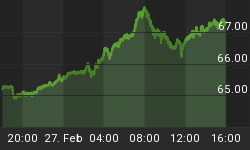The WeWork IPO has been delayed until later this year after investors soured on the company’s prospects, suggesting that the day of the unicorn may mercifully be squarely in Wall Street’s rearview mirror.
We Company—WeWork’s parent organization—had high hopes for its IPO. And so did everyone else. In January, WeWork was valued at $47 billion. Its IPO was expected to be the next hot ticket item for IPOs, and the market was all abuzz. But investors balked at some aspects of WeWork, which swiftly brought about the death of the Wall Street darling’s IPO plans.
The WeWork concept is clever if not already used (IWG, for example). But is it profitable? Not yet. In light of Tesla’s massive success with investor loyalty and turnout—even when it wasn’t turning a profit—one might assume that investors would try their hand at WeWork, too. But investor interest was lackluster.
This lack of enthusiasm hasn’t always been the case for the company that offers ready-made short-term office solutions for small businesses and freelancers. The WeWork IPO was expected to be the next hot ticket item for IPOs, but some aspects of the company drew criticism from investors and market analysts. Initially, the company was planning on riding out the market skepticism that has soured in the months leading up to the planned IPO. WeWork was even willing to set its sights on a much lower valuation—more than $30 billion lower.
Despite its persistence, eventually WeWork succumbed to market forces, leading the company to abandon its investor roadshow that was scheduled to kickoff this week.
So where did WeWork go wrong? Let us count the ways.
Investors initially balked at some aspects of WeWork’s corporate governance, which spelled out a rather generous power structure for founder and Chief Executive Adam Neumann. This didn’t sit well with investors, who would have preferred a less risky division of power with proper checks and balances.
Next, the company’s profit and loss figures were disappointing. No one expected WeWork to be turning a profit in H1 2019, but their financials were bad enough to earn them the label of the “most ridiculous IPO of 2019,” New Constructs Investment Analyst Sam McBride said of WeWork last month. WE lost $900 million in H1, which was an increase of 25% from the year prior. Investors might have forgiven the losses if they had been going in the right direction, but a widening loss was too much to bear. Related: Are Investors Being Lulled Into A False Sense Of Security?
WeWork may arguably have profit potential as a market disruptor like many other newfangled startups. But WeWork’s business model has one significant vulnerability—it has taken on billions in long-term leases that do not have opt out clauses, but it offers its own consumers short-term leases. A downturn in the economy, which could affect how much business space needs to be rented, may put the entire business model at risk with those long-term leases hanging around its neck. These long-term leases will cost WeWork $39 billion by 2024—compare that to their $1.8 billion a year in revenue, and it’s easy to see why the IPO flopped.
And then there’s the questionable conflict of interest. WeWork apparently leased some office space from Neumann’s own property, netting Neumann millions of dollars. For an IPO, such arrangements are typically not allowed to protect the company from anyone acting in his or her own interest.
Is it a real estate business or a tech startup? Don’t worry if you can’t answer that, because WeWork couldn’t quite figure it out either. It’s a real estate company through and through, but it tried to sell itself as a tech company. No sale.
What’s next for WeWork is unclear—their plan is still to launch an IPO later this year. But the increased scrutiny surrounding this IPO may be a sign that investors are growing more cautious—especially for companies that don’t look sound on paper.
By Julianne Geiger for Safehaven.com
More Top Reads From Safehaven.com:
















